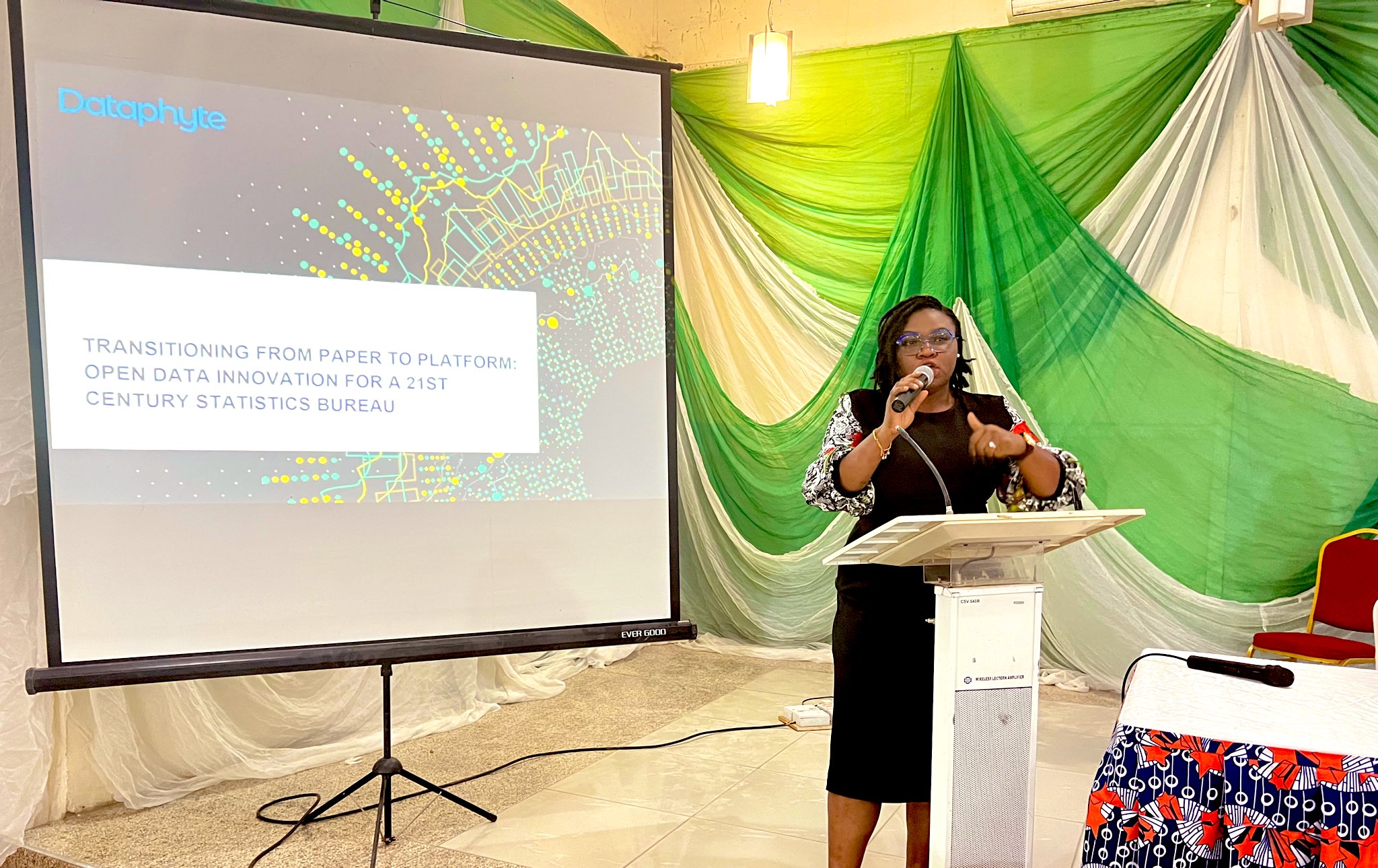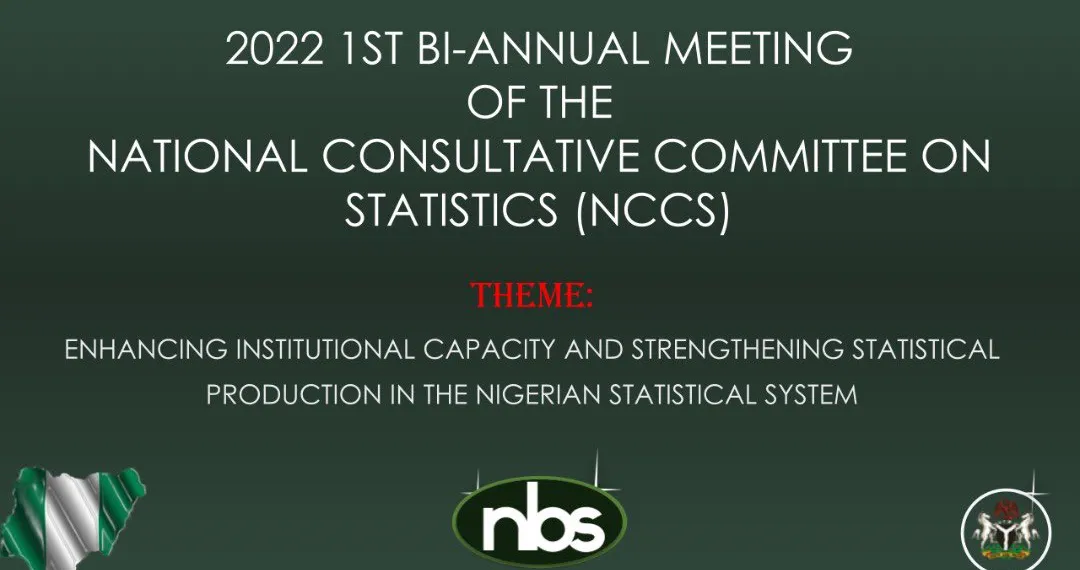Dataphyte recently collaborated with the National Bureau of Statistics to train Statistician Generals of the 36 State Bureaux of Statistics and representatives of MDAs on leveraging open data to ensure an innovative 21st Century Statistics Bureau.
The training titled “Transitioning from paper to platform: Open Data Innovation for 21st Century Statistics Bureau” took place on the 24th of March 2022, during the 1st Bi-annual meeting of the National Consultative Committee on Statistics (NCCS) for 2022 held in Kano state.
Dataphyte conducted the training as part of its mandate to foster a community of practice to advance access to socioeconomic data and open government at the subnational level.
At the national level, the National Bureau of Statistics (NBS) provides comprehensive, timely, relevant, responsive and customer-focused statistical information relating to the social and economic activities as well as conditions of the inhabitants of Nigeria, which is often available in both machine-readable and non-machine readable formats on an interactive website.
The same cannot be said for most state bureaux of statistics, which publish their datasets in rather inaccessible formats, particularly on printed papers. This constraints data dissemination and uptake by policy analysts, researchers and civic agents. Also, it limits the impact of the published data on socio-economic development.
According to a report published by Dataphyte, socio-economic development can be difficult and time-consuming without data, so the State Bureau of Statistics is in an excellent position to collect data at the ward level, collate it, and disseminate it to the public to facilitate analysis for socio-economic planning.
However, while existing State Bureaux make effort to collect subnational data that advance development to the best of their abilities and available resources, the lack of data in an open format limits the data’s use for long-term growth. As a result, there is a need for an open platform for data publication that is simple to use and reuse.
The value of data increases as it progresses through the stages of publication, according to Dataphyte’s Program Director, Ms Adenike Aloba, making it critical to think strategically and carefully about how data will be analysed, released, and disseminated to maximise their value and encourage future impact… And it’s something that open data platforms can help you accomplish.

Dataphyte’s Program Director, Ms Adenike Aloba
Dataphyte recently partnered with the Ekiti State Government to create the state-owned Open Data Portal, which allows the general public to easily access datasets published by the Ekiti State Bureau of Statistics. Also, at the 2022 Bi-annual National Consultative Committee on Statistics, the organisation proposed creating a similar platform for states that expressed an interest. For states like Plateau and Gombe, a couple of engagements have already begun.
The NCCS is one of the most important events on the statistical calendar, as well as an essential component of the statistical coordination mechanisms established by the Statistics Act of 2007. The NCCS has the mandate to review the statistical programs carried out throughout the year, receive updates from members of the National Statistical System (NSS), and harmonise the NSS’s statistical programs. In addition, the committee is expected to develop strategies regularly to ensure that all agencies use the same standards and methodology to improve the quality, comparability, and timeliness of statistical output.
Key presentations at the 2022 NCCS meeting included statistical reports from SSAs and MDAs such as the Debt Management Office (DMO), Nigeria National Petroleum Corporation, The Nigerian Association of Chambers of Commerce and the Central Bank of Nigeria.



